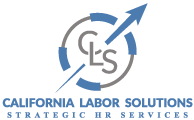With the summer hiring season upon us, it’s important to discuss the risks of misclassifying unpaid interns and the ways to avoid this costly (yet incredibly common) mistake.
School’s out for summer, which means many high school and college-aged students will be joining the workforce with the hopes of adding some real-world experience to their resumes. As a hiring manager or HR professional, do you know if your summer staff can be classified as an unpaid intern or whether they’re actually an employee?
“Unpaid Interns” and The Fair Labor Standards Act
In 2018, the US Department of Labor (DOL) updated The Fair Labor Standards Act (FLSA) to help reduce the increasing number of organizations that were misclassifying unpaid interns. See, the FLSA clearly states that ‘for-profit’ employers are required to pay employees minimum wages and overtime pay for their work – so “unpaid interns” created a grey area that put many businesses at risk of major fines and other consequences.
With the 2018 update, the DOL abandoned its prior six-part test for differentiating between an intern and employee, and instead implemented the seven-factor “primary beneficiary test” used by multiple federal appellate courts when determining cases related to the misclassification of interns.
The Primary Beneficiary Test for Unpaid Interns and Students
To circumvent the FLSA minimum wage provisions (without misclassifying unpaid interns), an internship position and program must be designed in a way where the intern receives the majority of the benefits, as opposed to the company and its employees.
Here are the seven factors that should be considered before deciding whether you’ve hired an employee or an intern (US Department of Labor’s Wage and Hours Division):
- The extent to which the intern and the employer clearly understand there is no expectation of compensation (any promise of compensation, express or implied, suggests the intern is an employee— and vice versa);
- The extent to which the internship provides training that would be similar to training provided in an educational environment, including the clinical and other hands-on training offered by educational institutions;
- The extent to which the internship is tied to the intern’s formal educational program by integrated coursework or the receipt of academic credit;
- The extent to which the internship accommodates the intern’s academic commitments by corresponding to the academic calendar;
- The extent to which the internship’s duration is limited to the period in which it provides the intern with beneficial learning;
- The extent to which the intern’s work complements, rather than displaces, the work of paid employees while providing significant educational benefits to the intern; and
- The extent to which the intern and the employer understand that the internship is conducted without entitlement to a paid job at its conclusion.
Misclassifying unpaid interns can be an incredibly costly mistake for businesses in California and across the US. To reduce the risk, it’s essential to hire an HR consultant who can guide you through the process and help you craft an internship program that’s compliant with both state and federal laws.
We Can Help You Minimize the Risk of Misclassifying Unpaid Interns this Summer
Trusted in the community since 2007, CaliforniaLabor Solutions LLC (CLS) is a specialized HR consulting firm – based out of Orange County, California – that offers comprehensive, personalized, and scalable outsourcing services designed to grow with your evolving needs.
As Founder and CEO of CLS, Shawn Larry takes a solutions-driven approach to human resources – working to inspire confidence in the CEOs and managers who depend on his leadership. In addition to 20+years of experience in the field, Shawn has achieved many credentials and recognitions, including a J.D. from UOP-McGeorge Law School; California Private Investigator License; Certified Mediator; Senior Professional in Human Resources Certification (by HR Certification Institute); and Senior Certified HR Professional (by International Public Management Association).

